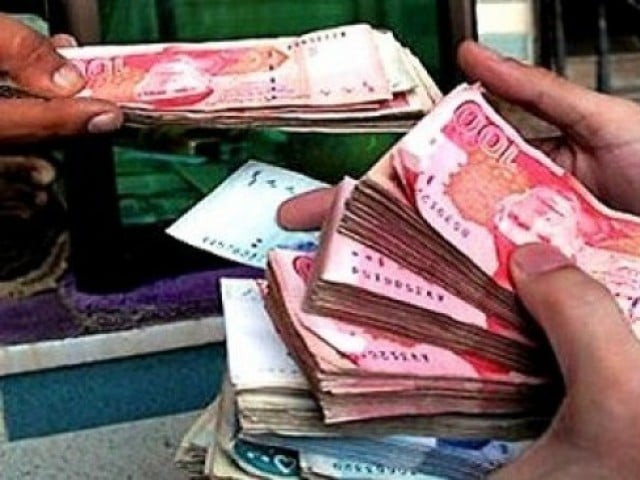Currency swap agreements: Easing pressure on the rupee
However, renminbi revaluation could have adverse effects.

Currency swap agreements: Easing pressure on the rupee
On Friday last week, Pakistan and China inked a currency swap arrangement to trade between themselves in each other’s currency, boost trade and investment and strengthen financial cooperation. The rupee strengthened 100 paisa against the dollar on that day after the news spread about the agreement. Earlier, the government had struck a similar agreement with Turkey.
Total trade volume between Pakistan and China was $7.4 billion last year, tilted in Beijing’s favour. Pakistan’s exports to China stood at $1.6 billion compared to imports worth $5.8 billion, showing a deficit of $4.2 billion, said the commerce ministry.
Experts also advocate the need for currency swap arrangements with major trading partners in order to reduce dollar demand and stabilise the rupee, the weakness of which has hurt the economy. In the inter-bank market last week, the rupee hit an all-time low at 90.03 per dollar because of hefty greenback demand for import and debt payments.
“When Pakistan and China are friends, then why not trade in dollar,” asked Faisal Shaji, Research Head of Standard Capital Securities, who termed the swap arrangement an encouraging step.
However, he cautioned that if China revalued its currency, in the face of mounting international pressure to strengthen the renminbi, this could have an adverse impact on the swap arrangement.
Discussing factors affecting the economy, he said foreign investors had taken out $113 million from the Karachi stock market over the past five months following low returns, economic slowdown and current account deficit. On the other hand, yield on Pakistan’s Eurobond, which will mature in 2016, in the international market has jumped to two-and-a-half-year high at 14.23 per cent.
“Swap arrangements will save dollar in bilateral trade and this money can be used for investment in technological development and achieving technical know-how,” said Malik Bostan, Chairman of Exchange Companies Association of Pakistan.
He said the saving of dollars would also put the country in a comfortable position when it would start repaying the loan provided by the International Monetary Fund (IMF) for balance of payments support. The government has to repay $1.4 billion to the IMF in February as the first installment of the loan of $8.7 billion. In addition to this, payments under the Coalition Support Fund (CSF) from the US have also stopped due to stand-off between Pakistan and the US.
However, remittances have increased 18 per cent to $5.24 billion in the first five months (July to November) of the current fiscal year.
Bostan was of the view that depreciation of the rupee would not have any significant effect on exports, basing his comment on historical trends when fall in rupee’s value did not substantially increase the country’s exports.
This year, exports are expected to be around $24 billion while imports will be around $39 billion, leaving a deficit of $15 billion.
Discussing the pressure on rupee, Bostan said importers had made forward booking of dollar for six months at the rate of 94 rupees. Besides this, “unchecked import of luxury goods, like cosmetics, also weakens the currency, which should be controlled by the government,” he said. The rupee has lost four rupees against the dollar in the past four months.
Published in The Express Tribune, December 26th, 2011.



















COMMENTS
Comments are moderated and generally will be posted if they are on-topic and not abusive.
For more information, please see our Comments FAQ